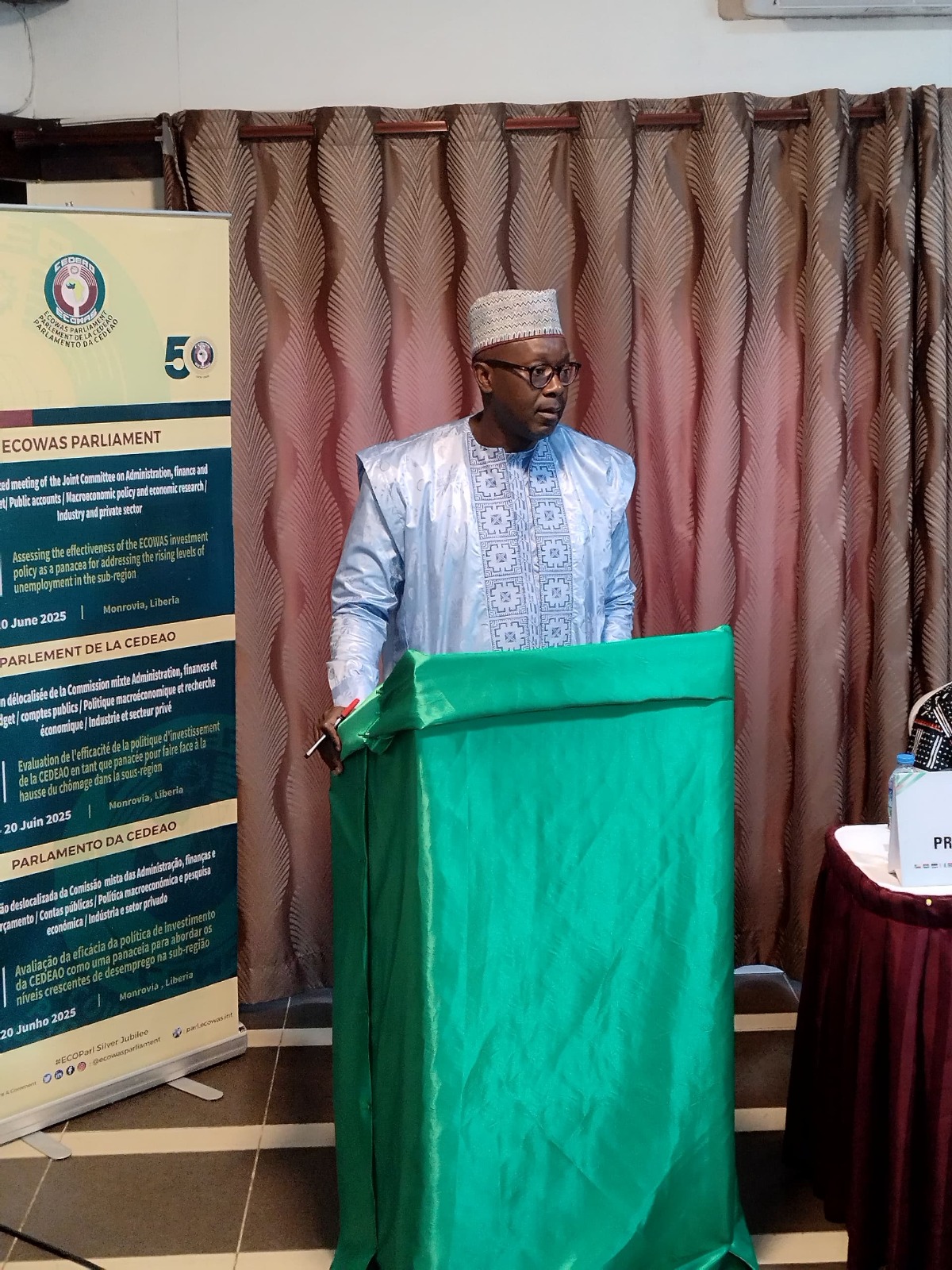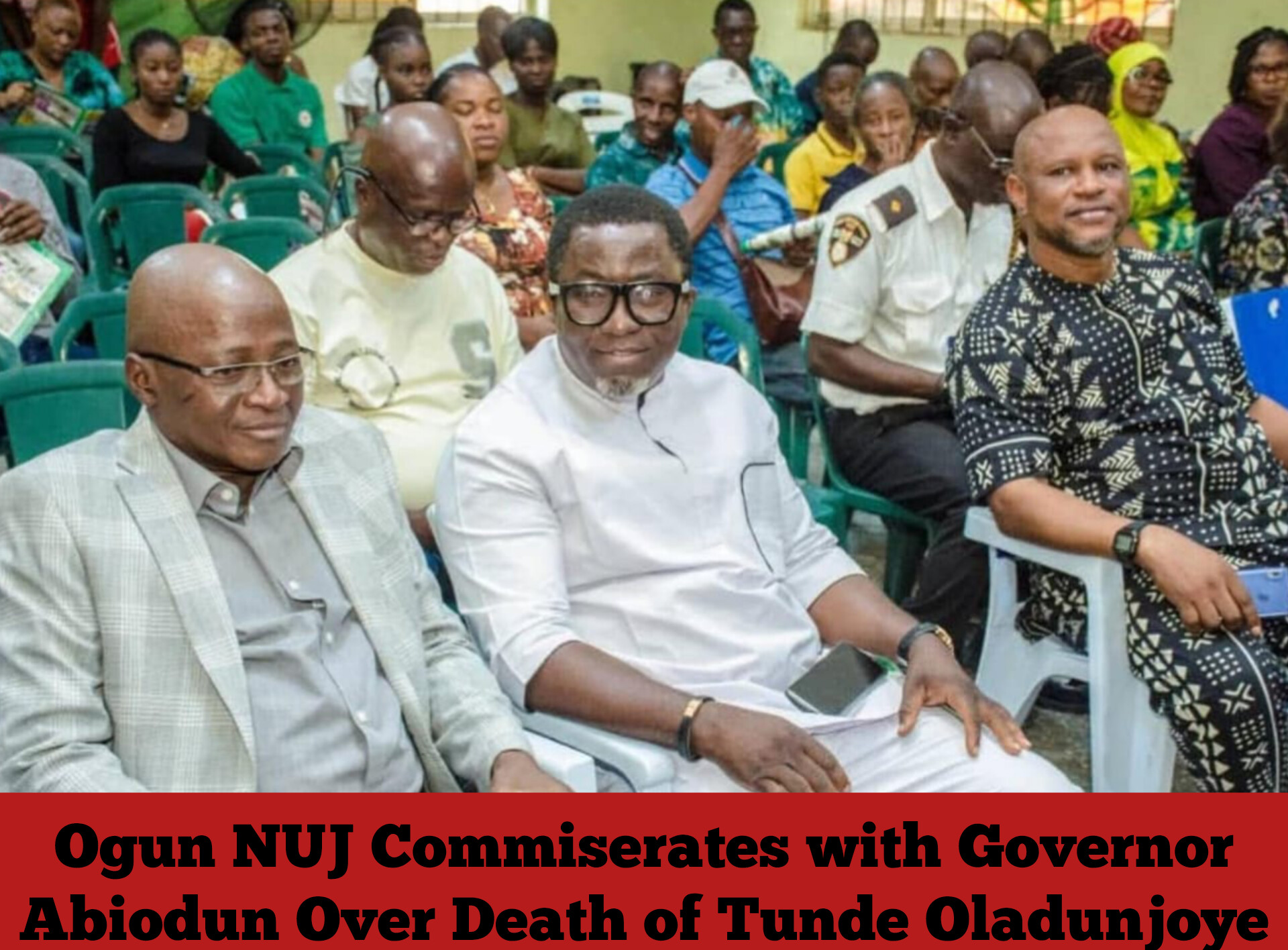The ECOWAS Parliament’s Joint Committee has entered the second day of its delocalised meeting in Monrovia, Liberia, undertaking a crucial review of the region’s investment framework amid a worsening unemployment crisis that disproportionately affects the youth.
In a presentation that struck a chord with regional lawmakers and stakeholders, Liberian Senator Amara Konneh delivered a sobering assessment of West Africa’s employment landscape, warning that existing strategies have failed to translate economic growth into meaningful job creation for the sub-region’s rapidly expanding youth population.
According to recent figures, West Africa’s unemployment rate stands at a staggering 24.95%, far above the global average of 5.8%. Youth unemployment rates are among the highest in the world, driving a surge in irregular migration as young people seek opportunities abroad. Despite an integrated market of over 400 million people and vast natural resources, the region continues to struggle with sluggish Foreign Direct Investment (FDI) inflows that have yet to produce the promised sustainable development and job creation.
Senator Konneh attributed the shortfalls to a range of structural obstacles, including fragmented regulatory frameworks, multiple currencies, small market sizes, inadequate infrastructure, and a widening skills gap. He underscored that 61.4% of West Africa’s population will be under 24 years old by the end of 2024, representing either a demographic dividend or a looming economic liability depending on the region’s ability to invest in human capital.
The Senator pointed out that while the ECOWAS Investment Policy (EIP) was established to spur investment, enhance infrastructure, streamline regulations, and foster job creation, its implementation has been inconsistent. Critical sectors such as agriculture — which employs over 60% of the region’s workforce — contribute less than 35% to GDP, hampered by low productivity and minimal mechanisation. Meanwhile, manufacturing remains marginal, accounting for under 10% of employment, and services industries continue to struggle with skills mismatches.
Small and Medium Enterprises (SMEs) — which represent more than 80% of West African businesses — also face steep challenges scaling their operations due to limited financing options and regulatory bottlenecks.
To tackle these issues, Konneh outlined a comprehensive strategy focused on harmonising investment laws, enhancing Public-Private Partnerships (PPPs), and prioritising investment in high-impact sectors including agriculture, energy, manufacturing, and the digital economy. A critical emphasis was placed on technical and vocational education to better align workforce skills with market demands.
Additional proposals include the creation of transparent dispute resolution mechanisms, stronger governance frameworks, improved monitoring of tax incentives, and the organisation of annual ECOWAS investment conferences to directly connect investors with emerging opportunities in the sub-region.
Konneh urged the ECOWAS Commission to take a leading advocacy role in driving these reforms, with a target of fully integrating the ECOWAS Common Investment Code into national policies by 2030.
Analysis:
Senator Konneh’s candid appraisal marks a significant shift in regional policy discourse, moving from rhetoric to actionable solutions for addressing West Africa’s unemployment crisis. By placing renewed emphasis on SME growth, vocational skills development, and strategic sector investments, ECOWAS aims to foster sustainable, quality employment opportunities capable of curbing youth migration pressures and reinforcing regional economic integration.
The success of these proposals will be vital for the region’s future, as failure to deliver on job creation could undermine ECOWAS’s long-term stability and economic ambitions amid escalating geopolitical challenges.




